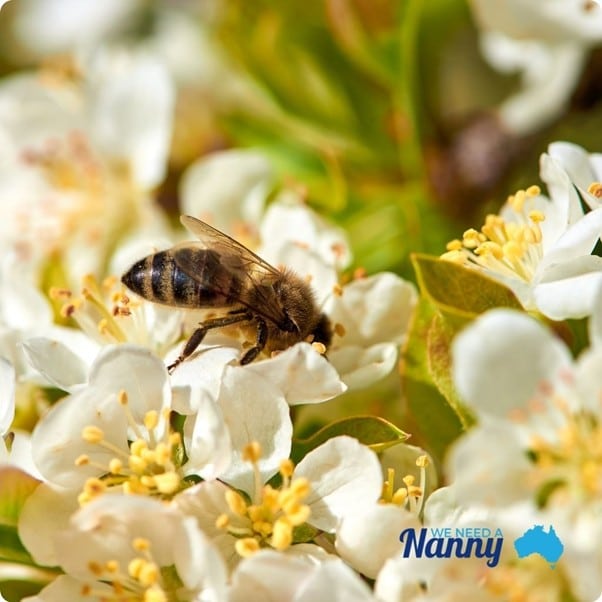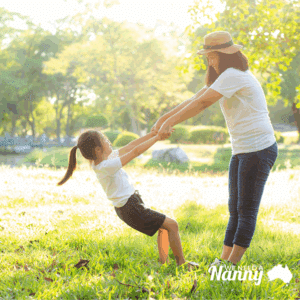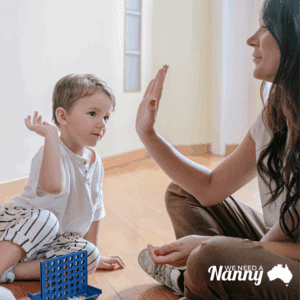Children who are more susceptible to allergies and hay fever can experience moderate or severe discomfort and health issues, making effective management crucial. As such, parents with allergy-prone children need to ensure that their child has a safe and allergy-free environment.
Managing allergies is challenging, especially when you do not know the cause of the allergic reactions and the associated risks.
It can be hard to maintain an allergy-free home, and if you have a nanny they must be considerate of your child’s environment. Allergies can come from dust, pollen, mites, animal hair or food allergens, so it’s important to work with your nanny to help prevent and manage allergy symptoms.
In this guide, we explore a few ways your nanny in Sydney can help reduce the impact of allergies and hay fever on your children.
Understanding Allergies and Hayfever and Their Impact on Children
An allergy can be a reaction to an external stimulus in which the immune system overreacts to a substance. A range of substances could trigger an allergic reaction in children.
These substances are commonly called allergens, including dust mites, pollen, pet hair or certain foods. Chemicals such as alcohol, perfumes in cosmetic products, laundry detergents, and some fabrics can also cause a reaction.
A few of the symptoms related to allergies include:
- Asthma – Asthma is more of an atopic condition triggered by allergens resulting in coughing, wheezing, shortness of breath and difficulty breathing.
- Sinus Issues – Allergens can also cause sinus infections, which can cause sneezing and a blocked nose. Continuous exposure could lead to a sinus drip, which can lead to more severe ear infections and tonsilitis.
- Eczema – Eczema is a skin condition that manifests as itchy, red and inflamed patches. Untreated, it could result in infection and fever with large sores on the skin. Eczema triggers are predominantly related to food allergies; however, certain chemicals in bath products, fabrics and pets could cause a reaction.
- Eye Irritations – Allergic reactions can also manifest as itchy, watery eyes that become red and swollen.
- Food Allergies – Certain foods, like wheat or gluten, lactose in milk, eggs, nuts, or fish, could trigger a reaction in people. The reaction ranges from moderate stomach cramps, breathing issues, and scratchy throat to more severe anaphylaxis.
If you don’t manage allergies properly, more severe health conditions may develop. This is why your nanny must be knowledgeable about your child’s allergies, their symptoms and the appropriate treatment or response in case of allergic reactions.
Common Allergens in Your Home
Many household allergens contribute to allergies and hayfever, especially in children. Understanding these allergens and determining which of them causes an allergic reaction in your child can reduce exposure.
Food Allergies
Food allergies are becoming more prevalent in children. Food additives can lead to severe or long-term reactions. To prevent illness and allergies, it’s best to ensure children eat mainly whole foods.
However, the most common food allergies are:
- Nuts such as peanuts and tree nuts.
- Dairy products, especially milk and cheese.
- Eggs and sometimes foods containing eggs.
- Soy and products containing soy protein.
- Shellfish, such as crab, mussels and prawns.
- Gluten and wheat, like in bread, pasta, baked goods, pizza and cereals.
Dust and Indoor Allergens
- Dust mites are an indoor allergen that significantly contributes to allergies.
- Rugs and carpets harbour dust mites, dust and other allergens.
- Upholstered furniture also harbours allergens and pet hair.
- Curtains and blinds that are not washed regularly can contain mites and dust and can become mouldy.
- Air Conditioning vents collect dust and other allergens.
Seasonal Allergies and Pollen Season
Plants, grasses, tree pollen, weeds, flowers and outdoor moulds or spores are the main causes of seasonal allergies.
In some regions, crops are sprayed with pesticides at certain times during the year, which can lead to allergies.
Garden and Outdoor Allergens
- Your garden hosts allergens that could cause illness in children playing outside.
- Insect bites and stings can lead to moderate or severe reactions.
- Pesticides and fertilisers contain chemicals that could trigger allergic reactions.
- Your child could have an allergic reaction to certain pets.
How Your Nanny Can Help Prevent Allergens in the Home
An experienced nanny in Sydney can help you take more proactive steps to reduce allergen exposure. This helps ensure a safe environment for your child with allergies and hay fever.
Here are a few key measures that they can implement:
An experienced nanny in Sydney takes proactive steps to reduce allergen exposure and ensure a safe environment when needed. Here are some key measures they implement:
Reducing Exposure to Allergens in Your Home
Your nanny can help with light household chores such as cleaning and vacuuming carpets, curtains and furniture to ensure they are dust-free and safe. Similarly, you can use an air filter in your home to purify the air and remove dust and pollen.
You can also encourage your nanny to keep doors and windows closed, especially during high pollen season or windy days.
Managing Food Allergies
Your nanny can help prepare healthy, allergy-safe meals for your child and ensure that they read labels carefully before giving foods to your child.
Your nanny can help reduce cross-contamination or other contaminants by wiping down counters and kitchen surfaces.
Educating caregivers and staff on your child’s food allergies is essential to prevent any potential reactions.
Creating an Allergy-Friendly Environment
Teaching children good hygiene practices, such as washing hands and bathing regularly, helps to keep them safe from potentially harmful allergens and contaminants.
It is important to use fragrance- and alcohol-free, hypoallergenic bath products that will not cause an allergic reaction.
Your nanny can ensure proper ventilation in the children’s bedrooms and play areas to reduce indoor pollutants.
It is crucial for children with pet allergies to ensure that pets stay away from the child’s bedroom and play areas to reduce allergens.
Safety Outdoors
As a parent and nanny, it is essential to ensure that outdoor play areas are safe and clean. Regularly check sand pits and play areas for contaminants. Monitor children playing outside, especially after grass is cut as loose grass could cause a reaction.
Recognising Symptoms of Allergic Reactions
Educate your nanny to immediately recognise any allergies and hayfever symptoms and the necessary treatment.
Symptoms could include sneezing, skin irritation, coughing, a runny nose or itchy eyes.
The nanny must monitor the child for more severe symptoms, such as breathing difficulty or swelling and administer medication.
Inform your nanny of emergency medication such as EpiPens or antihistamines and how to administer them to your child. Your nanny must know the child’s allergy history and any previous reactions to make informed decisions.
Taking Emergency Measures for Allergic Reactions
The nanny must respond swiftly in an emergency, especially when parents are not around. Recognising the onset of anaphylaxis and acting immediately is essential. The child may require medication as prescribed, or in severe cases, it is vital to contact emergency services. Similarly, the nanny is responsible for contacting the parents and informing them of any allergic reactions or episodes.
Conclusion
As a family with children prone to allergies and hayfever, your nanny in Sydney plays a significant role in safeguarding your children from exposure to allergens, implementing prevention strategies and responding quickly to allergic reactions.
The nanny can help maintain a clean and allergen-free environment for your children and prepare meals that are safe to prevent any episodes.
Ensure that your nanny is fully prepared in an emergency and they can respond appropriately and quickly.
To ensure your child’s well-being, make sure your nanny is qualified in Children’s First Aid and experienced with managing allergies and hayfever.
A nanny agency can provide candidates with relevant training and experience, especially when dealing with children prone to allergies.
With the right nanny at your side and preventative measures in place, you can better limit your child’s exposure to allergens and foster a safer and happier environment.





